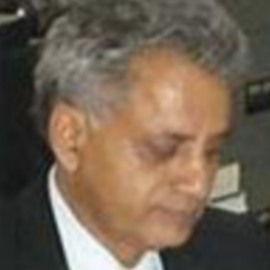
Moin Uddin
Work place: Delhi Technological University, Delhi, India
E-mail: prof_moin@yahoo.com
Website:
Research Interests: Computer Science & Information Technology, Computational Engineering, Computer systems and computational processes, Engineering
Biography
Prof. Moin Uddin is a senior member, IEEE. Moin Uddin did his B.Sc. and M.Sc. Engineering in 1972 and 1978 from Aligarh Muslim University, Uttar Pradesh, India. He completed his Ph.D. in 1993 from Roorkee University, India. He has more than 30 years of experience in academics and research and is currently serving as Pro-ViceChancellor, Delhi Technological University, Delhi. Prior to this, he was Director of Dr. B R Ambedkar National Institute of Technology, Jalandhar, India. He has large number of publications in international and national Journals and fourteen research scholars have completed their Ph.D. under his guidance and five more are pursuing the same. He has designed the computer engineering curriculums of many international and national universities and institutions and is among the expert panel of these universities. Prof. Moin Uddin is a life member ISTE national society and member, board of studies, of many institutions.
Author Articles
Novel Spectrum Handoff in Cognitive Radio Networks Using Fuzzy Logic
By Nisar A. Lala Moin Uddin N.A. Sheikh
DOI: https://doi.org/10.5815/ijitcs.2013.11.11, Pub. Date: 8 Oct. 2013
Cognitive radio is a technology initiated by many research organizations and academic institutions to raise the spectrum utilization of underutilized channels in order to alleviate spectrum scarcity problem to a larger extent. Spectrum handoff is initiated due to appearance of primary user (PU) on the channels occupied by the secondary user (SU) at that time and location or interference to the PU exceeds the certain threshold. In this paper, we propose a novel spectrum handoff algorithm using fuzzy logic based approach that does two important functions: 1) adjusts transmission power of SU intelligently in order to avoid handoff by reducing harmful interference to PUs and 2) takes handoff decisions intelligently in the light of new parameter such as expected holding time (HT) of the channel as one of its antecedent. Simulated results show impact analysis of selection of the channel in the light of HT information and the comparison with random selection algorithm demonstrates that there is considerable reduction in handoff rate of SU.
[...] Read more.Other Articles
Subscribe to receive issue release notifications and newsletters from MECS Press journals